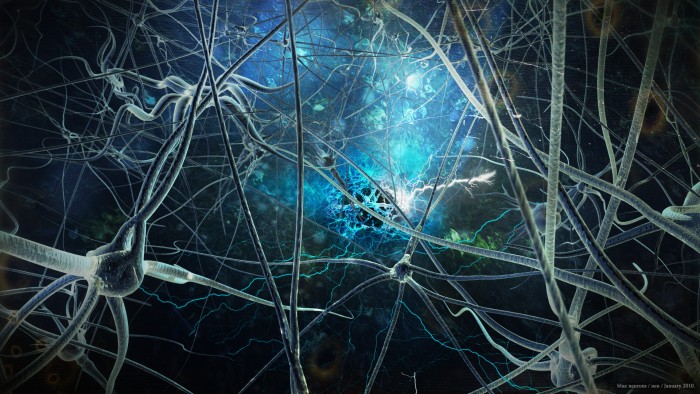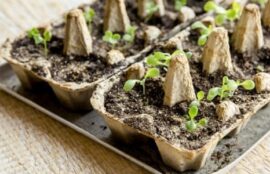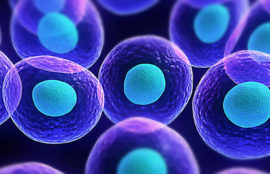3 Ways Your Lifestyle Can Encourage Neuron Growth and Brain Health
 There are trillions of cells in our body, and like us, they don’t live forever. Neurogenesis is the generation of new neurons (nerve cells that transmit information throughout the body). I’ll only briefly describe neurogenesis here; once you start to discuss the brain, there is labyrinth of questions and an abundance of new vocabulary around every corner. I’ll also share examples below of how to support this type of growth in your own noggin. Neurogenesis booms during pre-natal development, and in the 90’s Nature Medicine published a report stating that, contrary to previous understanding of neurogenesis, this process continues in our brains to varying degrees throughout our lives.
There are trillions of cells in our body, and like us, they don’t live forever. Neurogenesis is the generation of new neurons (nerve cells that transmit information throughout the body). I’ll only briefly describe neurogenesis here; once you start to discuss the brain, there is labyrinth of questions and an abundance of new vocabulary around every corner. I’ll also share examples below of how to support this type of growth in your own noggin. Neurogenesis booms during pre-natal development, and in the 90’s Nature Medicine published a report stating that, contrary to previous understanding of neurogenesis, this process continues in our brains to varying degrees throughout our lives.
The Wellesley College Biology Department site tells us that “examples of neurogenesis are found in the hippocampus of mammals, song control nuclei of birds and the olfactory pathway of rodents, insects and crustaceans.” The hippocampus is responsible for memory and spatial orientation, and its ties to emotional behavior are being studied. For example, reductions of size in this area have been linked to depression. Neurogenesis supports neural plasticity, or the ability of our brain to change and adapt as part of learning, development, and even to recover from brain injuries. The current hope is that scientists will discover a successful and safe way to guide neurogenesis.

One of the key players in neurogenesis is a protein called BDNF (brain-derived neurotrophic factor). If it’s been awhile since you’ve been in science class (like me) here’s a little re-fresher: proteins are large molecules which perform a wide array of functions. They consist of one or more chains of amino acids, which are organic compounds; the main elements of an amino acid are carbon, hydrogen, oxygen, and nitrogen, though they can contain other elements. BDNF is called a neurotrophin; a type of protein that effects the development and function of neurons.
Not surprisingly, neurogenesis can have a positive effect on learning and memory skills while lower BDNF has been linked to Alzheimer’s, depression, and schizophrenia. Luckily, the gene that activates BDNF can itself be activated by our daily behavior. Below are 3 examples of things we can do encourage neurogenesis.
1. You guessed it: Exercise.
Exercise is important for so many reasons; it has a positive effect on mood and sleep patterns and reduces the likelihood of developing heart disease, cancer, high blood pressure, and diabetes. And, it helps us to produce more BDNF, which supports neurogenesis. In a study done in 2008, adults with mental impairment showed an improvement in cognitive function after 6 months of regular exercise.

Primary Prevention of Cardiovascular Disease with a Mediterranean Diet with Walnuts. (PRNewsFoto/California Walnut Commission)
2. Yup, Diet.
A dietary restriction involving reducing caloric intake within a balanced diet has been shown to increase neurogenesis. Green tea, salmon, and blueberries are all high on the list of brain-healthy ingredients. Also, two specific dietary ingredients that boost neurogenesis are listed below:
-The spice turmeric, composed primarily of curcumin, increases our BDF levels.
-Resveratrol, a chemical found in red wine, as well as being antioxidant (decreasing cellular damage) and anti-inflammatory, increases neurogenesis. Stephanie Liou of Stanford University reminds us that because alcohol can also damage the body, it is important to use moderation and weigh the benefits and costs.

3. And, Self-Care and Mindfulness.
Both getting adequate sleep and engaging in sexual activity, as well as being generally healthy, are good for neurogenesis (hooray!).
Neuroscientists have learned that chronic stress and cortisol (a steroid hormone released during stress) can damage the brain and reduce neurogenesis. Mindfulness meditation has been shown to reduce the amount of cortisol.
A study published in 2010 showed that participating in a program of Mindfulness-Based Stress Reduction (MBSR) for eight weeks was found to produce increases in the size of the left hippocampus (which, remember, effects our memory and mood and is a place where neurogenesis has been previously observed). This program was developed by Medical Professor and Author Jon Kabat Zinn, and I can personally also recommend his books, Full catastrophe living: how to cope with stress, pain and illness using mindfulness meditation, and Wherever You Go, There You Are: Mindfulness Meditation in Everyday Life, as excellent guides to incorporating mindfulness into your lifestyle.
So in short, eating well and consciously, exercising, and practicing mindfulness, are good for your brain, and what is good for the brain, is good for all of you! These activities can even help the brain keep growing new cells as you age. Take care of yourself, and neurogenerate!
By: Ascension Lifestyle Contributor Julia Travers
https://juliatravers.wordpress.com/
https://twitter.com/traversjul
























Sorry, the comment form is closed at this time.